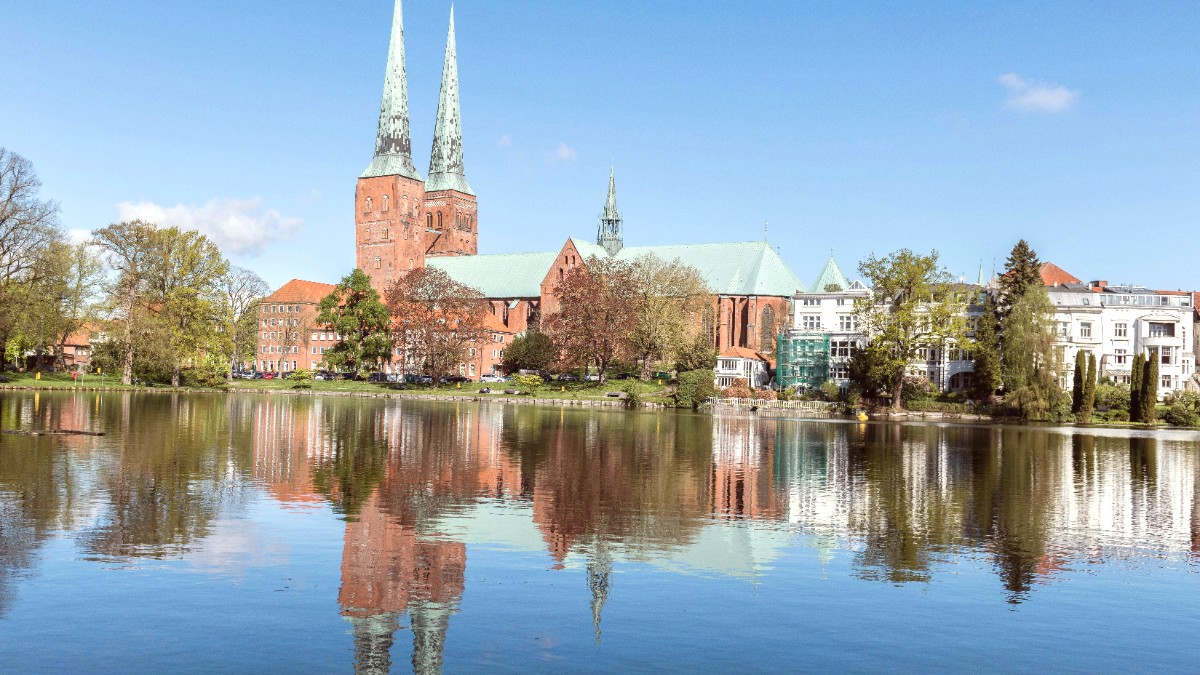
Schleswig Holstein, Germany
Visitors find a city where time appears to slow down. Historic merchant houses, with their characteristic gabled facades, line the winding streets. Narrow alleyways lead to quiet, picturesque courtyards, known as "Gänge" and "Höfe," offering peaceful retreats from the city bustle. These hidden passages invite discovery, away from the main tourist paths.
Lübeck is a warm and welcoming place, with cafes inviting guests to linger over coffee and pastries, and restaurants serving hearty Northern German cuisine.
The city balances its historical identity with contemporary living, making it a destination that appeals to history lovers, food enthusiasts, and those seeking a relaxing European getaway.
Lübeck sits in the northeastern part of Schleswig-Holstein, Germany's northernmost state. This geographical position gives it a distinct character, combining a Baltic Sea influence with connections to the wider German landscape. The city center, the Old Town, occupies an island formed by the Trave River. The river encircles the historic core, creating a natural boundary that has shaped the city for centuries.
Lübeck's proximity to other noteworthy Northern German cities, like Hamburg to the southwest and Kiel (the state capital) to the northwest, makes it an excellent base for regional exploration. Day trips to the sandy beaches of the Baltic Sea coast, including Timmendorfer Strand and Scharbeutz, are easily arranged. The Danish border is not far to the north, opening possibilities for cross-border excursions. This strategic location, nestled between rivers and close to the sea, defines Lübeck's appeal as both a historic city and a gateway to the diverse landscapes of Northern Germany.
Flows through Lübeck, meeting the Baltic Sea at Travemünde. This historically made Lübeck a powerful maritime trading hub.
Borders the Old Town to the east, a tranquil natural escape perfect for walking or kayaking.
Direct access to the sea via Travemünde reinforces Lübeck's trading legacy.
An island core, shaped and protected by its river boundaries.
Lübeck's location in Schleswig-Holstein provides it with a distinct regional identity.
Lübeck balances its rich past with a modern outlook. Its UNESCO World Heritage designation protects its architectural treasures, ensuring they remain for future generations. The city proudly celebrates its Hanseatic heritage through museums like the European Hansemuseum and various cultural events.
Lübeck's power stemmed from its leadership in the Hanseatic League, a powerful confederation of merchant guilds and market towns that dominated trade across the Baltic and North Seas from the 13th to the 17th centuries. Lübeck served as the league's unofficial capital, orchestrating trade routes for goods like salt, grain, timber, and fish.
This period of prosperity marks the striking Brick Gothic architecture that defines the Old Town today. The Holstentor, St. Mary's Church, and the Town Hall are testaments to this golden age of commerce and influence.
Lübeck's history gives a deep context for its current character, offering visitors a chance to connect with centuries of European development.
Lübeck is a distinct blend of historical depth, architectural beauty, and a pleasant urban atmosphere. Here is a quick look at what makes this city a rewarding destination:
Lübeck is a prime example of Brick Gothic architecture. Its iconic landmarks, like the Holstentor (Holsten Gate), St. Mary's Church (Marienkirche), and the Town Hall (Rathaus), display this distinctive style. The city also features charming hidden alleys ("Gänge") and courtyards ("Höfe") that invite exploration.
In Schleswig-Holstein, Germany. The historic Old Town is on an island, surrounded by the Trave River, with scenic views.
A leading member and unofficial capital of the Hanseatic League, a powerful medieval trading alliance. This past of prosperity is visible in its architecture.
Features several museums, including the European Hansemuseum, and is famous for its Marzipan and hearty Northern German dishes.
Lübeck is a very walkable city, making it easy to explore its many treasures.